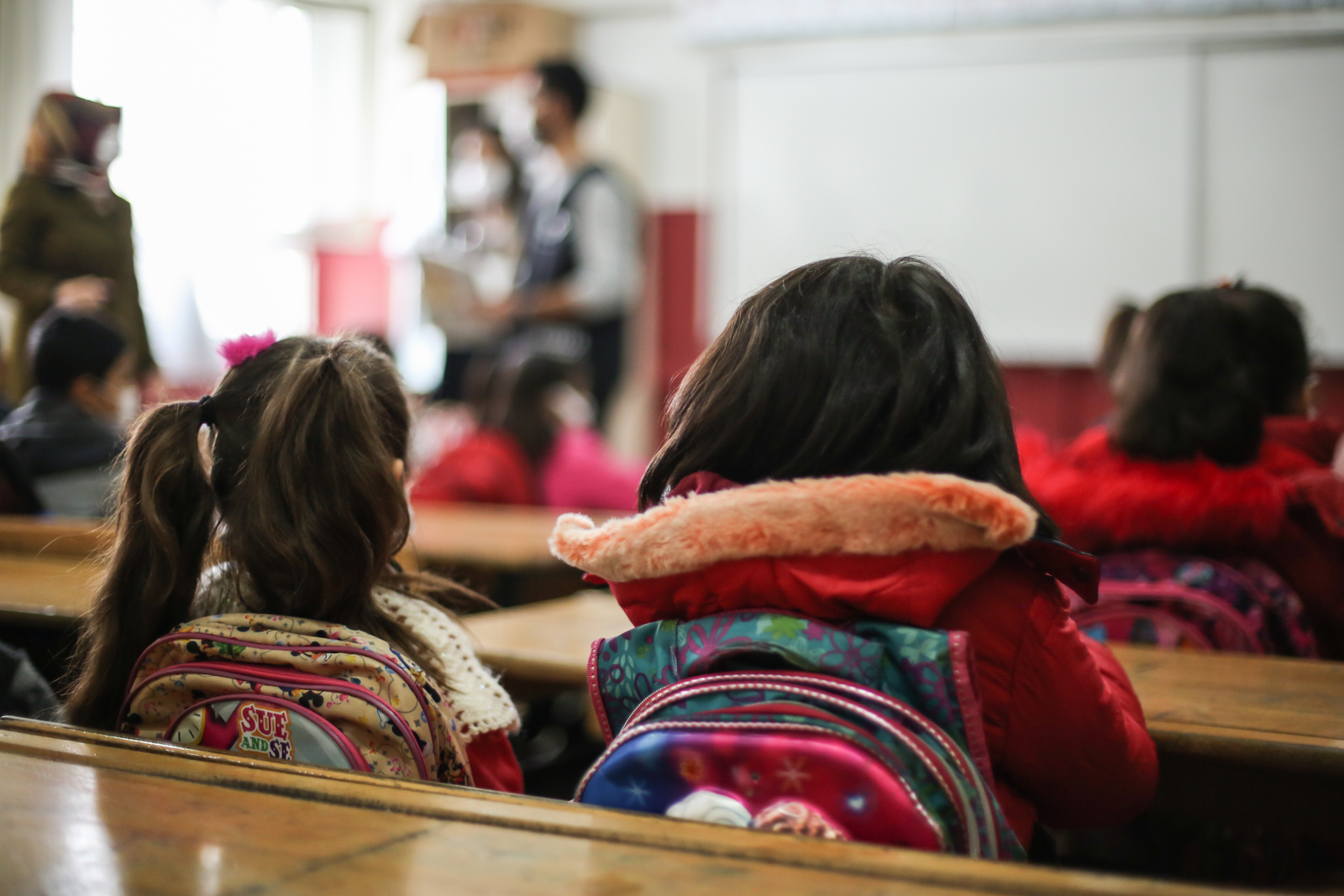
Schoolgirls become world leaders for the day in equal rights campaign
Girls' education
To mark International Day of the Girl today, more than 1000 girls have taken over some of the top jobs around the globe.
Question: What do the presidents of Peru and Paraguay, the prime minister of Timor-Leste and the European Union ambassador to Egypt have in common?
Answer: They’re all schoolgirls. Well, they are today, because it’s International Day of the Girl.
More than 1000 girls have symbolically taken over some of the top jobs around the world – from executives at Google and Facebook to government posts and local councils.
It’s all part of a campaign called Girls Get Equal, launched on International Day of the Girl by the child rights organisation Plan International.
Around the world, girls are denied equal access to education and opportunity – just because they are girls.
Almost one in 10 girls are not in primary school, according to new United Nations figures. Girls of every age are more likely to be excluded from education than boys. And that leaves them at risk of child labour, early marriage and exploitation.
Among today’s takeovers is Emily – president of Peru!
Amazing #GirlsTakeover news from Peru. Emily has taken over from her country's President!
"I received the enormous responsibility to become President and represent the voices of Peruvian girls, especially those who live in rural areas like me."#DayoftheGirl pic.twitter.com/kktrqYa8Qt
— Plan International (@PlanGlobal) October 11, 2018
In Paraguay, 11-year-old schoolgirl Nara has also become president for the day. She dreams of becoming an engineer – but she also fears sexual assault after several of her friends were attacked and raped.
“My example for other girls as president is never give up and be confident in yourself. It’s not just the boys who can achieve things,” Nara told the Thomson Reuters Foundation.
“I would like that girls are treated as equals. Men always leave us behind and place barriers in our way.”
Nara said sexual violence is one of the biggest problems holding girls back in Paraguay.
“The thing that’s most difficult for girls here is the abuse, the harassment, the rapes,” she said. “Girls feel trapped inside themselves because of the violence they have experienced.”
Reports show about 18 million girls aged 15 to 19 are victims of sexual violence each year – often leading to school dropout and reinforcing cultural practices such as early marriage.
Millions of girls are harassed on their way to and from school. Even when they get there, they can suffer sexual violence and bullying.
For last year’s International Day of the Girl, Theirworld looked at 13 reasons why girls are not in school. They include early marriage, pregnancy, conflict, disabilities and a lack of female teachers and role models.
More than 50 million child marriages could be prevented by 2030 if all girls finished secondary school, the charity Save the Children said today.
As well as education, the rights of girls and women are routinely being overlooked. A 2017 global survey of 30,000 young people by the World Economic Forum found more than half of young women felt their views were not heard or not taken seriously.
Only about one in four parliamentarians worldwide is a woman, while fewer than one in five government ministers is female.
As part of Girls Get Equal, other takeovers today include girls running the parliaments of Zimbabwe and Western Australia.
Anne-Birgitte Albrectsen, chief executive of Plan International, said: “It’s girls’ turn to take the lead – to be seen, heard and valued as equals.”
More inspiring girls getting equal today
Congratulations to 11-year-old Santina, who today took over the role of Timor-Leste's Prime Minister, His Excellency Taur Matan Ruak @PRepublicaTL! #DayOfTheGirl #GirlsTakeOver pic.twitter.com/xQonvbnY7B
— Plan International (@PlanGlobal) October 11, 2018
Sonnie Lawrance 21, took over the Vice President Office of #Liberia and was able to performed duties during the day.
She challenged fellow girls to be focused and aim for the best of their lives so as to contribute to the nation meaningfully. #GirlsTakeover #DayOfTheGirl pic.twitter.com/Mdg5eiDmIG— Plan International West and Central Africa (@PlanWACA) October 10, 2018
“Hi, I am Daphira from Meghalaya. On the International Day of the Girl Child, I have taken over the Belgian Embassy and will be the Belgian Ambassador for today! Give girls a space to show their potential. Stay tuned.” #GirlsTakeover #DayoftheGirl @Plan_India @planbelgique pic.twitter.com/l7tjf94B1x
— Belgium in India (@BelgiuminIndia) October 11, 2018
Nermin taking over @IRLEmbCairo #GirlsTakeover #DayoftheGirl pic.twitter.com/BOQfZScV9a
— Seán O Regan (@SeanOReganIRL) October 11, 2018

More news

Skills for the future give young people the best chance of success
